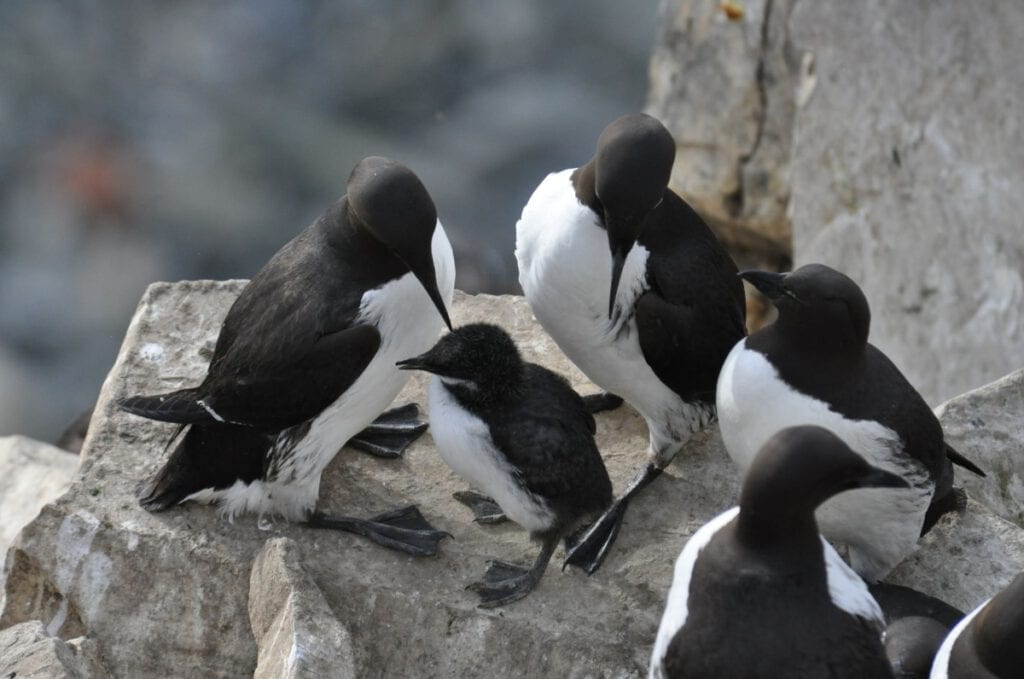Tourism and traffic near the breeding sites reduce seabird breeding success
A study that was conducted at one of SEAPOP’s key sites in Finnmark, Norway, shows that increased human traffic close to the breeding sites has a negative impact on the reproduction in two of the three studied species. If no actions are taken to regulate tourism and other adverse traffic in and around the bird colonies, the disturbance might ultimately result in population declines.
Tourism to the bird cliffs at Hornøya in East-Finnmark has increased greatly in recent years, and researchers from SEAPOP therefore studied its effect on breeding success in 2015 to 2017. The project was financed by the County Governor of Finnmark and the Norwegian Environment Agency, and the objective was to determine how and to what extent tourist traffic in the bird colony affected seabird breeding success and provide a basis for assessing how nature-based tourism can be made sustainable. The researchers monitored the breeding success of black-legged kittiwakes, common guillemots and European shags, and a report from the work has been published by The Norwegian institute for nature management (NINA).
Read the report (abstract in English):
For the black-legged kittiwakes, it seems that tourism had an insignificant effect during the study period. Conversely, there were partly significant negative effects on common guillemots and European shags. In sample plots near the path along which the tourists passed, breeding success was considerably lower than in undisturbed control plots, but did vary between years. The difference between the disturbed and the undisturbed plots was clearly greatest in the years when traffic was highest (2016 and 2017). The researchers concluded that tourist traffic near the colony, both on land and at sea, most likely caused reduced breeding success for both common guillemots and European shags, and that efforts to avert and direct the traffic around the colony are necessary to mitigate these effects and to protect the populations.
Contact person: Tone Kristin Reiertsen, NINA

